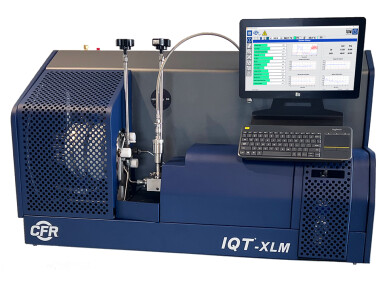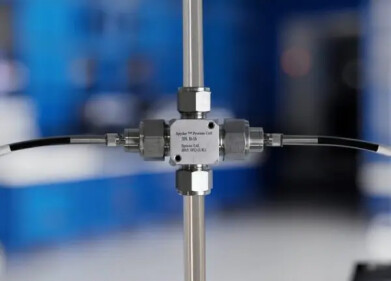Analytical Instrumentation
Converting GC & GC-MS Methods from Helium to Hydrogen Carrier Gas - More than Just Changing the Cylinder
Oct 29 2013
In recent years, the gap between the supply and demand for helium gas has become increasingly tight. Shortages have forced facilities to ration use or even shut down. Helium has gone up in price by a factor of four from 2000 to 2012, and is expected to increase at a rate of 5 to 20% per year. Under these conditions, laboratories have considered hydrogen as an alternate carrier gas in GC-MS. Hydrogen is a low cost, renewable resource that can be generated on demand, offering the advantages of a high diffusion coefficient, low viscosity and low density with the flattest Van Deemter curve for fast and efficient separations.
However, converting GC and GC-MS methods to hydrogen carrier gas can present challenges in terms of laboratory safety, reactivity/absorption in both the injector and ion source, and decreased sensitivity. Some practitioners have tried connecting a hydrogen line to their GC/MS systems without making any changes to the method, only to find high background, poor chromatography, and severe mass spectral distortions, prompting them to abandon the endeavor. The Bruker (USA) SCION TQ with Helium-Free package allows the user to operate safely with hydrogen carrier with minimal loss of sensitivity or spectral distortion. The unique axial ion source design with large turbo pumps are ideal for this low viscosity gas.
Digital Edition
PIN 25.5 Oct/Nov 2024
November 2024
Analytical Instrumentation - Picturing Viscosity – How Can a Viscometer or a Rheometer Benefit You? - Sustainable Grease Formulations: Evaluating Key Performance Parameters and Testing Method...
View all digital editions
Events
Dec 03 2024 Dusseldorf, Germany
Dec 08 2024 Anaheim, CA, USA
Turkey & Black Sea Oil and Gas
Dec 11 2024 Istanbul, Turkey
Dec 19 2024 Aurangabad, India
Jan 20 2025 San Diego, CA, USA



















